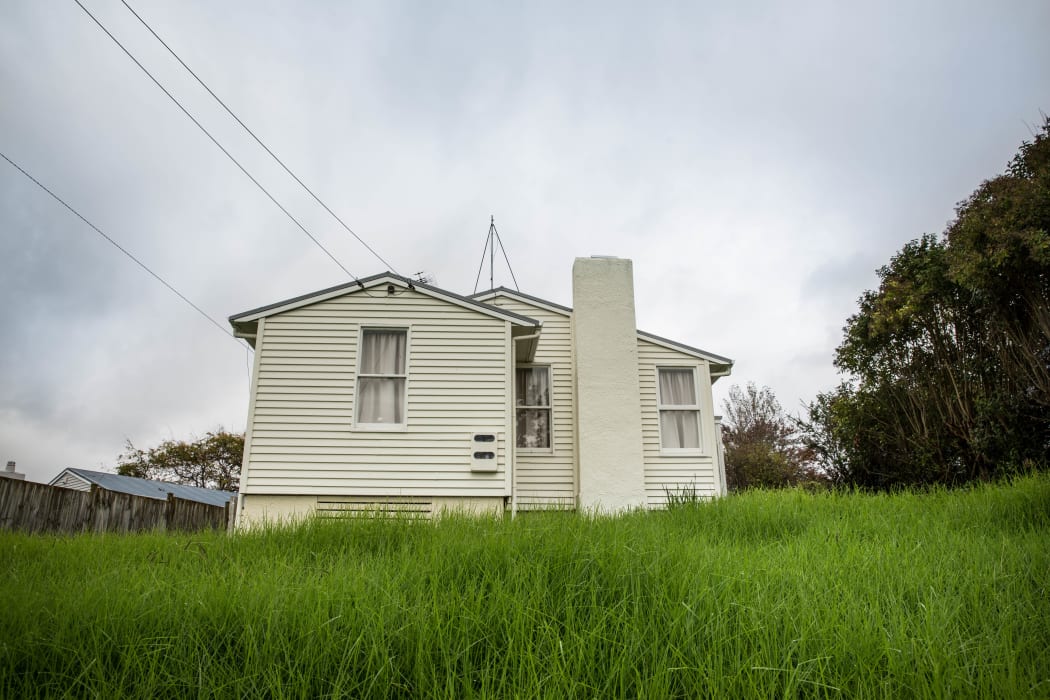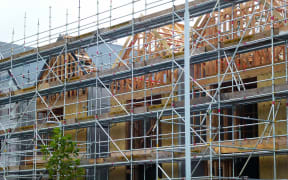Wealthy investors are meeting with community housing providers from across the country today in a bid to find urgent solutions to the housing shortage.

A University of Otago study found 41,000 people live in substandard housing in New Zealand. Photo: RNZ / Cole Eastham-Farrelly
Housing providers say hundreds of millions of dollars is needed every year to build low income homes, but private investors say they're struggling to find the right projects.
Philanthropy New Zealand, which organised the event with Community Housing Aotearoa, said about 20 groups would be at today's seminar in Auckland, including family foundations, community and energy trusts.
Alastair Rhodes, chief executive of Tauranga-based BayTrust, said the community trust was already investing $3 million on housing projects through low interest loans and wanted to double that by becoming an equity investor with housing providers.
But Mr Rhodes said it wasn't easy finding developments. Deals weren't being done because private investors, housing providers and the government were not working together.
"People need to front up and start working on these things. We can't just keep doing what we've always done because that actually hasn't made a difference and these CHiPs (Community Housing Providers) aren't getting to the size and scale that we need them to be.
"These community housing providers, they don't have the background in investment, or knowledge, or the contacts to set up and structure deals like this, and so if you brought in someone like us alongside we've got the contacts and relationship, we've got private equity advisers. You can create a structure and a deal in terms of how you set up the formal structure, how you get your private equity investors involved."
Fund aims to entice more investors in social housing
New Ground Capital is taking the plunge into community or social housing, teaming up with the New Zealand Housing Foundation for the first time to entice more private investors into the sector with a special community housing fund.
The so-called impact fund would partner with the Housing Foundation on projects similar to Waimahia Inlet on the shores of Manukau Harbour.
A partnership between philanthropic groups and housing providers, the development is a model for helping solve the housing crisis by providing affordable homes.
New Ground Capital managing director Roy Thompson said the impact fund enabled wealthy individuals and groups to be part of the solution to the crisis.
"We go out and we talk to investors, that's individuals, philanthropic organisations, businesses, anyone who has capital and wants to be part of the solution to the housing crisis that we're all facing, but doesn't really know how to approach it and we help them by making that fund available."
Mr Thompson said he was overwhelmed by the response from philanthropists who wanted to put money into the fund.
A University of Otago study found 41,000 people live in substandard housing in New Zealand.
Community Housing Aotearoa chief executive Scott Figenshow said without wealthy private investors taking a stake, the sector wouldn't reach its goal of building an extra 15,000 houses in the next 15 years.
"We're talking about the need for capital of around $600 million a year, it's a huge number and it's far larger than what government is either considering doing or perhaps even able to do.
"So in order to crack a number that big we've got to look at ways that we can bring some new investment to the table, on terms that still deliver social and affordable housing."
He said today's seminar would work on an equity deal that would attract more investors and land developers to become partners in community housing, instead of simply lending money or making grants.
"By investing it they're going to need to expect firstly to get it back, and secondly that they might expect to get a return on it.
He said that was a tricky point for investors as social and affordable housing had historically been low return types of activities.






